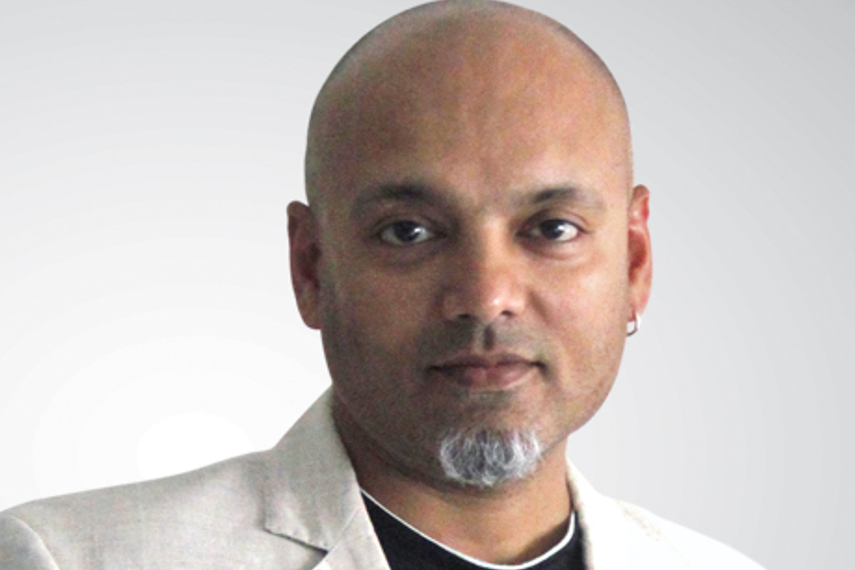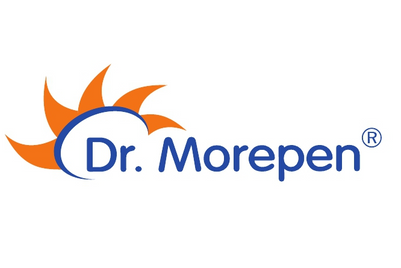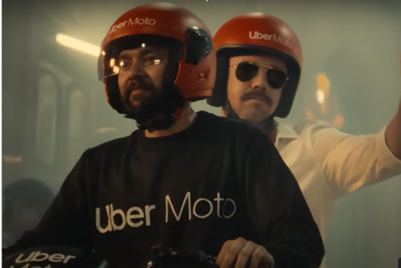
Tell us about your entry into advertising... and the journey till now...
I always wanted to be an architect. I was very good in mathematics and science. I was expecting a certain percentage to be in the merit list but missed out due to my scores in languages. I was so disappointed and didn’t want to study any theory anymore. So, my father asked me to join JJ School of Art. I got into JJ in Fine Arts and Applied Arts. I took up Applied Arts because my brother had already joined advertising. That inspired me and the shift happened to advertising.
At JJ, a lot of people reach one particular level before a ceiling comes in, because of a language barrier. But I was certain I wanted to be an NCD. In JJ, whether you pass your final year exam or not, you have a job based on the project you display. Agencies come, see the work, and you would get picked up. I got an offer each from Trikaya, Ambience and HTA. Everyone was going to Trikaya and Ambience because they were the hot shot agencies then, but I went to HTA – which was doing the highest number of TVCs at that point of time.
HTA wasn’t a very creative place to be in. At that time, it was a very sound place strategically. So, I decided to single-mindedly pick up learnings from people who I worked with - Ketaki Gupte, Meera Patwardhan, Anil Bhatia and Mike Khanna. I thank my lucky stars I was in the same room as all of them. It was good fun because the exposure I got on TVCs and how they are made, what is required to sell them, was immense. I call the three years at HTA the groundwork for my career. It wasn’t a high point creatively, but I learnt a lot.
I then decided to push my creative boundaries and joined Alok Nanda at Trikaya. In Alok, I found a true leader in the sense of creative. It was a major turning point. I worked on Mauritius Tourism, Crossword, Premson Bazaar. I won my first Art Director of the Year award for Premson Bazaar. There was also a cosmetics brand called Tips and Toes for which I did two campaigns.
At that time, the world of cosmetics had only female creative directors and I was a male CD who had the sensibility of what women would want. Elsie (Nanji) got to know about this. Ambience handled Lakme and she was very curious as to how a male was doing such kind of work. She called me over and it was very refreshing to meet her. She said she was impressed with my work and asked me to join. I said I was only there to meet her, and refused. But we remained in touch.
Alok then started planning his journey from Trikaya to Alok Nanda Communications (ANC) but said that he couldn’t take me along, because he wouldn’t be able to afford me. I didn’t see myself at Trikaya after Alok left, and asked Elsie if her offer was still on. I went and signed the paper work. The same evening Alok called me and told me he had a client now and wanted me to join. I told him I’d signed with Elsie and didn’t want to disappoint her.
At Ambience, it was a different kind of experience again. Elsie’s passion when it came to art direction was quite something to watch.
We’ve lost the concept of art direction now. When we open a newspaper now, we don’t know what the brand language is. We just do layouts and people think that is art direction. When you think of the mode of photography, tone of voice, typeface, colours of the brand... that is art direction. People are after clean layouts, but sometimes a clean layout is not what is required. That’s what I learnt from Elsie. It was a nice experience working there and I had no real reason to leave until Alok called me again and said it had been three years and he wanted me to come back to work as a profit-sharing partner.
I joined and it was great fun. I think the entrepreneur side of me came out. The thinking changed completely.
I got into the scheme of retail design and worked with Lee, Yes Bank, and got into a lot of multi-disciplinary things. That’s what set me on the path to where I’ve reached now with Hyphen. It opened a lot of avenues for me.
I was ECD at ANC and it was a small agency, and I thought I had something more to do. Elsie called again. Ambience was going through a rough patch with its creative leadership. She wanted to set up a new team and start up all over again. I took it up as a challenge. I wanted to be an NCD by 35, and I achieved it. Ramanuj Shastri left and there was a void. The management saw it fit that Ashish Khazanchi and I would take over. We had a blast.
The first time me met, it was bizarre – both of us are bald, we were wearing the same clothes (white shirt and blue denims) and had the same HTC phone! We hit it off right away. We figured out the task we had in the first year went about putting the place in order (lifting morales, hiring people etc). We got a good team together and it was a whole bunch of people who clicked - that reflected in us being a top three awarded agency in 2009 and 2010 at Goafest. We got a pretty awesome haul at Cannes too. It was a beautiful time. Then some managerial decisions were taken that affected the financial situation. Things turned a little unpleasant in terms of the employee outlook. The morale was hit again and people started migrating from the agency.
I started getting a little disillusioned with advertising. I was feeling a little down and Alok called me again. He said we should look at monetising product designing and do something in the line of brand engagement. We discussed this for a year before embarking on this journey of Hyphen and Brand Canvas (2011).
Both the companies are doing their own specific work with regular clients. Hyphen will be designing a whole range of stationery soon for Crossword. We’ve got projects for luxury consortiums at Brand Canvas. It’s been a fantastic journey and we now feel we’re doing something that will stay with us for a while.
What are the challenges in the advertising industry currently?
The attitude is one. People now do it (coming late, throwing attitude) because they have to do it. Back then people did it because it was a lifestyle. I think people are pushing it too far with no reason for it now. I think now nobody is conscious of the quality of work. We’re taking too many inputs from the client and delivering only what they want. If the media world has expanded so much, shouldn’t we be working doubly hard to get the attention of the consumer? We should be working on the best possible creative - I don’t mean the most radical, but it has to stand out for the client. It can’t be that I do a 45 per cent or 60 per cent job and it’ll work and I’m fine with it. I see a lot of that happening right now and I think it’s a crisis.
We need to jolt the client and show them possibilities; how are they going to respect you, pay you more fees?
I think advertising can still be fun and regain its space. Clients now know what entails TV and print advertising. Earlier they took our point of view as they didn’t know much about the medium. Now, agencies can do the same with respect to digital, social media, and gain back the ownership of creative ideas and coax clients to let them create brave advertising. We need brave advertising to claim our spot in the sun and to be treated with respect and become cool again. Becoming cool is important - you have to have swagger when you go for a big presentation that will blow the client away. The attitude can’t be based on hollowness; it needs solid work. Right now we have the swagger, but no work to back it up.
What’s your take on the 30-second TVC and the current state of advertising?
The charm of advertising is still the same for me. In the 90s when I joined, print was ‘the’ medium. TVCs became that in the 2000s. Media has proliferated so much - be it TV, outdoor, social media - the idea has to stand out. If you look at MTS’ ‘Internet baby’ film – it’s on television and is still engaging. Whether one likes it or dislikes it, people are taking notice of it. This ad is doing something cool for MTS.
I think today there is such a big opportunity for the idea to stand out because of the increase of channels. If an idea doesn’t work in one medium, it can be shifted to another.
Advertising folks need to have a certain amount of conviction. It’s a judgement call - you can make four good calls and you’ll probably make two bad calls. It’s fine to make those two bad calls. Why should we have this pressure that it has to work everytime?
Your take on awards...
Awards and mainline work have to have a healthy balance. If you see the proportion of work winning at Cannes too, more than 50 per cent will be for award-related work. Why should there be such a hue and cry?
The euphoria you get when mainline work gets an award is incomparable to anything. But, to stretch your creative boundaries repeatedly, you need to do award-winning work. An ideal world is one where the popular work breaks all creative boundaries. When you do award work and show it to the client who agrees to release it in one or more media, he is taking a very lenient view of your creative. I think the popularity or edginess of a popular campaign is more dependent on a creative client than a creative agency. I feel as an agency, we should start honouring them more. If we encourage marketers to be mavericks in marketing, we’ll get a lot more work.
Awards are fuel to a creative fire. Creative people are driven by egos and feelings. There is a feeling of winning an award and getting recognition. It’s not about doing 10 campaigns that worked – it’s not about statistics. The fire has to be kept burning. This is the place where creative leadership comes in. Being an NCD is not only about work, but seeing how your people are feeling.
Who would you call your mentors?
Anil Bhatia (HTA) - he was a fantastic CEO and the best branch head I’ve seen. Ravi Gupta for being the entrepreneur he was. Elsie and Alok are obvious mentors too. Ashok Kurien is another. These are the people who have formed my beliefs and principles in advertising and I’m very grateful to them.
Arrow Craftsmanship When the product attributes were translated into witty copy and helped built brand character.
Kamasutra Sport condom films The choice was between shooting seminude hot international models & shooting everyday dull sports articles. The decision was obvious.
Himani Fast Relief My NCD role, jointly with Ashish Khazanchi, saw Publicis register its best years with top three finishes at Goafest and Cannes in 2009 & 2010. One of the pieces that helped us achieve it.
Western Union Money transfer fast currency The first campaign using currency notes, an international award winner, that inspired many similar campaigns afterwards and contiues to do so.
Premsons Bazaar TVC Probably the only film that Ram Madhwani has agreed to do for a couple of lakhs and not a couple of crores. Was the start of a great collaboration with him over many films.
Lee Perfect Fit A product attribute can be always elevated and highlighted with a creative twist.
Business Standard Motoring Art direction can be used to sharpen a strong visual idea and deilver a impactful brand message.
Indiabulls My most ambitious and experimental project till date and probably the most satisfying one.
Infomedia A maverick clients is essential to the process of creating great advertising.
Indian Express Bombay attacks Our expression about the event that shook everybody up.
RBI Paisa bolta hai In advertising rarley do you get to talk to the true masses of the country. All of it. And rarely do you get to collaborate with a genius mind like Gulzar.
Ish watch The international consumer response that this piece has got truly illustrates the point that emotions/insights are not limited by geographical boundaries.
Goa - Spinach Even a promo offer can be converted into a cheeky creative.
Hit Chinese Probably the only Indian TVC made & aired entirely in Mandarin barring the one FVO line.
Lee Flagship Store Whilst this found its way into the D&AD retail showcase, this project marked my first steps into retail designing.
Wrangler Retro Its important that when you see a celebrity the brand and the idea doesn't get lost or overpowered. Here Wrangler+Retro jeans+ John Abraham work their magic together.
Orra Design, always, has to be a simple and elegant solution.



















.jpg&h=334&w=500&q=100&v=20250320&c=1)
.jpg&h=334&w=500&q=100&v=20250320&c=1)



.jpg&h=334&w=500&q=100&v=20250320&c=1)
.jpg&h=334&w=500&q=100&v=20250320&c=1)


.jpg&h=334&w=500&q=100&v=20250320&c=1)








